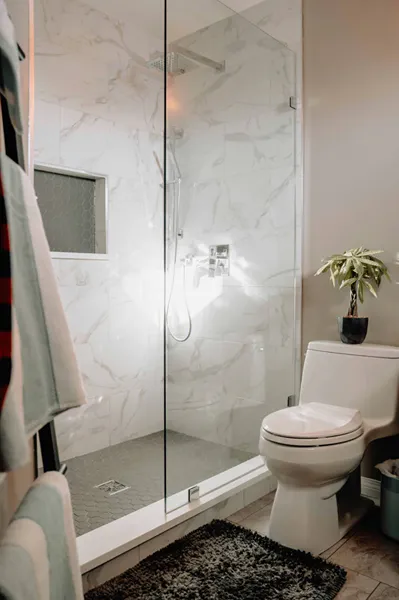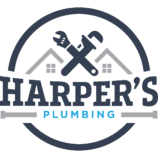Introduction to Water Softener Functionality
Water softeners play a crucial role in ensuring that your home enjoys soft water. By exchanging minerals like calcium and magnesium with sodium or potassium, water softeners prevent scale buildup, safeguard plumbing, and enhance the effectiveness of soaps and detergents. However, like any home appliance, a water softener can face issues that hinder its performance. Knowing how to identify these issues promptly can save you from costly repairs and ensure your water quality remains optimal.
Common Signs Your Water Softener Isn’t Working
Decreased Water Pressure
A sudden or gradual decrease in water pressure throughout your home could indicate a clog in your water softener’s filter or resin bed. This blockage can restrict water flow, impacting your daily water usage.
Changes in Water Taste or Smell
 If you notice a change in your water’s taste or smell, it might be a sign that your water softener is failing to remove minerals effectively. Water that tastes salty or smells unusual could point towards malfunctioning components or settings in need of adjustment.
If you notice a change in your water’s taste or smell, it might be a sign that your water softener is failing to remove minerals effectively. Water that tastes salty or smells unusual could point towards malfunctioning components or settings in need of adjustment.
Visible Scale Buildup
One of the water softener’s primary roles is to prevent scale buildup. If you start to see scale on your appliances, faucets, or pipes, it’s a clear indication that your water softener isn’t functioning as it should.
Increased Soap Usage
Hard water doesn’t lather as easily as soft water, requiring more soap or detergent for washing clothes, dishes, and even bathing. If you’re using more soap than usual, it’s likely your water softener isn’t softening the water effectively.
How to Conduct a Basic Water Softener Health Check
Before diving into more complex troubleshooting or calling a professional, there are a few checks you can perform to assess the health of your water softener.
Checking Salt Levels and Bridges
Ensure that the salt level in your brine tank is sufficient and not too high. Salt bridges—hard crusts that form on the salt’s surface—can prevent salt from dissolving in the water, hindering the regeneration process. Gently breaking these bridges can often resolve minor issues.
Testing Water Hardness
A simple at-home water hardness test kit can help you determine if your water softener is effectively reducing the water’s hardness. Persistent hardness despite the water softener’s efforts could signal a need for maintenance or adjustment.
Inspecting the Control Valve and Timer
The control valve regulates the water flow through your water softener, and the timer sets the regeneration cycles. If either of these components is malfunctioning, it could affect the entire system’s efficiency. Check for any error messages and ensure the settings match your household’s water usage.
Troubleshooting Tips for Common Water Softener Problems
When you encounter issues with your water softener, a few troubleshooting steps can often resolve common problems without the need for professional help. Here’s what you can do:
How to Break Salt Bridges
Salt bridges in the brine tank can prevent salt from mixing with the water, crucial for the regeneration process. To break a salt bridge, gently use a long-handled broom or similar tool to tap the bridge lightly. Be careful not to damage the tank’s walls or the bottom.
Resetting Your Water Softener System
Sometimes, simply resetting your water softener can resolve unexpected issues. This can involve turning off the power to the system, waiting a few minutes, and then turning it back on. Refer to your water softener’s manual for specific reset instructions, as procedures can vary by model.
When to Call a Professional
If basic troubleshooting doesn’t resolve the problem, it may be time to call in a professional. Persistent issues such as constant water leakage, severe decreases in water quality, or system errors are best handled by experienced technicians who can diagnose and fix complex problems.
Maintaining Your Water Softener for Long-Term Performance
Regular maintenance is key to ensuring your water softener operates efficiently for years to come. Here are essential maintenance tasks you should perform:
Regular Salt Refills and Types of Salt to Use
Keep the salt level in your brine tank at least half full, but not more than two-thirds. Use the type of salt recommended by your water softener’s manufacturer, whether it be solar salt, rock salt, or evaporated salt pellets.
Cleaning the Brine Tank
Annually cleaning the brine tank helps prevent salt bridges and mushing—a condition where salt dissolves into a sludge at the bottom of the tank. Empty the tank, clean it with soapy water, and rinse thoroughly before refilling with salt.
Scheduling Professional Maintenance Checks
Even with diligent at-home care, having your water softener professionally inspected and serviced every 1 to 2 years can preemptively address wear and tear, keeping the system running optimally.
How Long Do Water Softeners Last?
The durability of a water softener hinges on various factors such as usage frequency, upkeep, and the hardness of the water it treats. Generally, with proper maintenance, a water softener can endure for up to 15 years. Recognizing these variables and associated costs is crucial for homeowners, enabling them to make informed decisions about whether to repair an older system or opt for a replacement.
Conclusion
By understanding the common signs of a water softener malfunction and knowing how to perform basic diagnostics and maintenance, you can ensure that your system will provide your home with soft, clean water for years to come. Remember that timely troubleshooting and regular maintenance are the best tools to extend the life and efficiency of your water softener. In the Calgary area and need help with your water softener or want to install a new one? Harper’s Plumbing is here to help!






